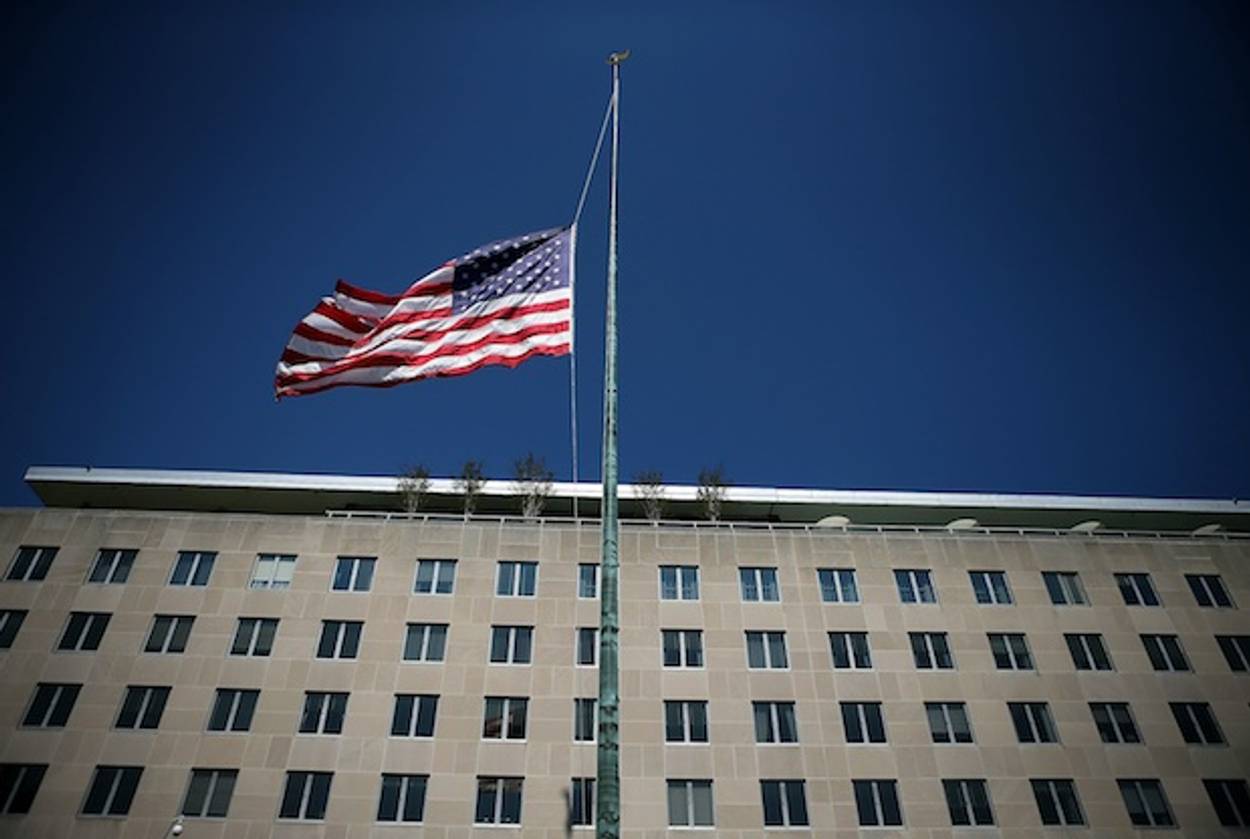Beware of Even Numbers
The film ‘Innocence of Muslims’ and the dangerous failing of the media




“100 Jewish donors.” Google it, and 17,000 results follow; 1,490 just in Google’s “News” tab. Strung together, those words sound altruistic. But place those words in the context of the attacks taking place against the United States embassies, and the foundations are built for a grandiose conspiracy. Place them still further in the context of a $5 million hate film, and that controversy becomes more elaborate, playing on classic tropes of Jewish control over Hollywood. What I am saying is words and context matter, which is why all those media outlets—and they were many—that reported that Jews were behind the hate film, The Innocence of Muslims, should be so embarrassed.
It all began when the Wall Street Journal and Associated Press published notes from an interview with Sam Bacile, then thought to be the producer behind the film that is said to have been the catalyst for the riots at U.S. embassies in Cairo, Tunisia, Yemen, Iran, and even Israel. Bacile told both the AP and the WSJ that he was an Israeli-American and that he raised $5 million from “100 Jewish donors” for the film.
Both the WSJ and AP, in an exercise of stenographic journalism, dutifully published those two details about Bacile’s nationality and his donors’ religions, all without knowing whether Sam Bacile was the individual’s real name or whether he had actually produced the film. In fact, it took the Wall Street Journal an entire day after publishing these details to conduct a records search on whether the name Sam Bacile was even real. (That records search turned up no references to any men in the United States by that name.) By that time, there were already 17,000 Google search results. The other U.S. newspaper giants—the New York Times, the Washington Post, USA Today—all parroted these details, as did the large city-specific ones.
The problem is, as the WSJ’s belated records search and AP’s belated reverse-phone search revealed, Sam Bacile was not a real person; neither was he Jewish or Israeli. As for his “100 Jewish donors,” that, too, appears to have been a lie. Bacile, now identified as Nakoula Basseley Nakoula, appears to be a Coptic-Christian. Worse, the New York Times, the Wall Street Journal, and others have not yet issued corrections reflecting these critical changes on their initial stories.
As Jeffrey Goldberg said, though, “It is not possible to withdraw such a story.” It has already spread across the Middle East. No amount of journalistic-backpedaling removes the 17,000 Google results for “100 Jewish donors.” None of this will stop the enraged, Islamist protesters from chanting, “Death to Israel, Death to America” at the embassy riots that have already cost four American lives, including our ambassador to Libya, Chris Stevens. Of course, films do not turn people into murderous rioters, as Matt Welch eloquently argued on these pages, and these attacks do appear to have been preplanned. But that these widely promulgated details about Israeli and Jewish involvement in the film helped fan the flames of the protesters’ murderous rage is beyond dispute.
For the journalists who spoke to “Sam Bacile,” specifically those at the AP and the WSJ, did they bother asking any of these questions?:
1. You say you’re Israeli. [Switch language and conduct the remainder of the interview in Hebrew. This is the WSJ: Finding a Hebrew speaker is not impossible.]
2. What was your home address in Israel?
3. For a $5 million film, this looks pretty crappy. Was that your intention, as an artist? It was your intention? Great, but how did you spend that $5 million of Jewish money if your set looks like something out of a high-school play?
4. Why did you stop at the 100th Jewish donor? Couldn’t find one more?
5. Why did you dub over the voices of your actors?
6. Can you please put us in contact with some of the actors? We’d like to hear whether they agree with your statement that “Islam is a cancer” as well.
7. You’ve been uncannily straightforward that your donors are Jewish and that you have Israeli roots, why?
Even without asking any of these questions, red flags should have been raised by the filmmaker’s forthcomingness about his donors’ Jewishness. The Jews who do promote anti-Muslim causes—few in number, to be sure—tend to do so much more clandestinely. (For example, it took the Center for American Progress—no stranger to controversy over its coverage of Israeli and Jewish affairs—six months of investigative research to document what it identifies as an “Islamophobia network.”) Gloating about one’s Jewishness after being implicated in tragic events, where people die, is not a hallmark of our people.
These mindless attacks and senseless killings, which have been exacerbated by sloppy and dangerous reporting, should remind us of the responsibilities of journalists. The journalists who uncritically reported that “Sam Bacile” was an Israeli-Jew with “100 Jewish donors” should ask themselves, to quote Abraham Cooper of the Simon Wiesenthal Center in Los Angeles, “What steps can be taken in the future to make sure they are not manipulated by individuals who are looking to smear all Jews.”
Fewer than five printed words can become the rallying cry of people killing your countrymen and -women. “100 Jewish donors” reminds us that we must all beware of even numbers.
Earlier: Truth About the Muhammad Movie [The Scroll]
Who Is Sam Bacile? [The Scroll]
Related: A Pretext to Murder [Tablet Magazine]
Behind Video, Web of Questions [WSJ]
Sam Bacile, Israeli Jew, May Actually Be Nakoula Basseley Nakoula, Coptic Christian [Atlantic]
Protestors Storm U.S. Embassy in Yemen in New Attack [LAT]
Why Are the Religious References in ‘Innocence of Muslims’ Dubbed? [OTM]
Sources: Libya Attack Pre-Planned [Daily Beast]
Islamophobia Network [ThinkProgress]